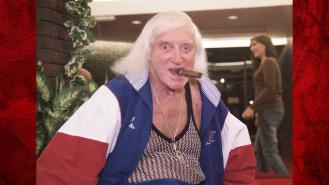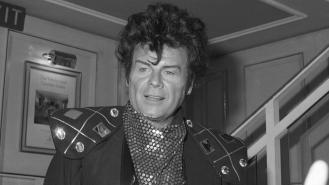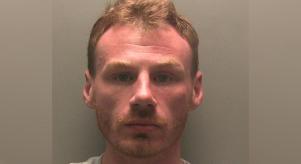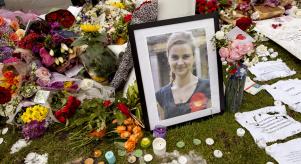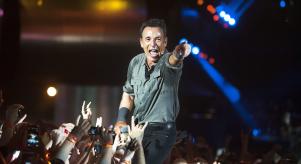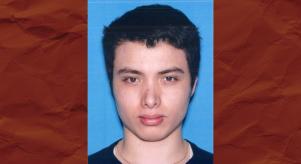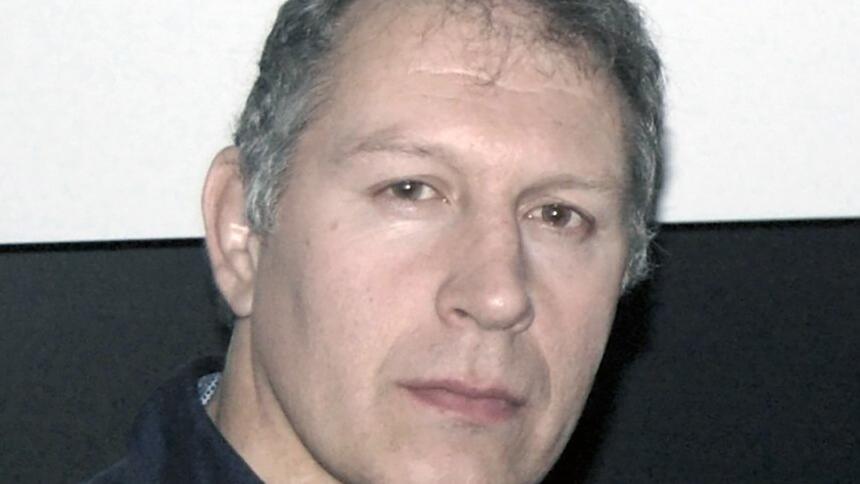
Mark WIlliams-Thomas: The man who exposed Jimmy Savile
Mark WIlliams-Thomas is a former police detective and a criminologist who has far-reaching experience of working at the centre of high-profile investigations and undertaking major reviews. Over the last decade, he has reported on nearly all the biggest crime stories including Oscar Pistorius, The Alps murders, Tia Sharp murder, the Claudia Lawrence murder, the murder of Alice Gross and the disappearance of Madeleine McCann.
It was Mark's programme in 2012 for ITV's Exposure that finally exposed Jimmy Savile as one of the nation’s worst ever paedophiles. As a direct result of Mark's investigation, the Metropolitan police set up Operation Yewtree which led to the arrest of high-profile celebrities Rolf Harris and Max Clifford.
Crime+Investigation spoke to Mark to talk about exposing depraved paedophile Jimmy Savile and what's it like interviewing a killer.
You must have a unique perspective into true crime as a journalist and former detective?
My background as a former detective is vital to the work that I do. I'm almost a poacher turned gamekeeper. As a police officer, I investigated major crimes now I'm on the other side working with the media trying to find out the details of these major investigations. We have a vital role in the media to put information out to the public who after all are the eyes and ears of the police force and I think that relationship works really well.
As a script advisor for various TV crime dramas, what do you think TV gets right and wrong?
More often than not the major crimes are opportunistic, most murders are not planned and premeditated, they tend to be the spur of the moment. Often that plays into an offender's benefit because the more opportunistic it is the harder it is to catch somebody.
20 years ago, on television, you wouldn't see police investigating crimes in the way they are today. Now it’s all very open. We call it the CSI effect and by and large the public know how the police go about investigating a crime.
I work in television from a documentary point of view, but of course, there are dramas as well which include some factual stuff but have the poetic licence to step away from the reality to focus on what would make a good story. I’m not in that position. Everything I do is about being factual, clear, precise and accurate.
What is troubling for the public is that we can’t always get the end result for an investigation. We can’t just make it up as a drama can. Real-life is very different. When we start making a programme, we can’t determine what the outcome is going to be.
You were the first journalist to expose Jimmy Savile. What was it like to lift the lid on his horrific crimes?
It was an incredible privilege to be involved in something like that. When it first came to my attention, I looked at it and it became very clear that he was a significant predatory paedophile and his story needs to be exposed.
It took it took an awful lot of hard work. Out of all the investigations I have done it was the hardest. There were many hurdles along the way that we had to get over. There was people's bias, there were individuals who didn't want the programme to be made and there were real reluctance and fear.
As a result of Savile’s exposure which sat on the front pages for 41 days we've managed to save hundreds, thousands of young people from being abused. Not just by Savile’s victims coming forward but by numerous other people who had the strength to come forward and speak out. In response, the authorities changed the way they investigate crimes and I think it’s had an impact, not just in the UK but internationally.
The legacy of finally exposing someone as powerful asJimmy Savile created a tidal wave of change, that we have seen with the recent exposure of Harvey Weinstein and other cases that have come to the forefront.
If Savile was such a prolific sex offender, why was he not exposed earlier?
Once he died, the floodgates really should have opened, but they didn't. There was a reluctance of taking on someone as powerful and in a way, untouchable. That was until we did our painstaking work to build the evidence up in such a way, that anybody watching reached the determination that he clearly was a sex offender. As a result of that, hundreds of people came forward, saying that he had abused them as well. He was a sex offender for almost 50 years. This is a man who almost walked with impunity around the place and was allowed because of his status to have access to young people.
What was it like interviewing Oscar Pistorius?
I was the only journalist in the world to get an exclusive interview with Oscar Pistorius, before his conviction. I spent a lot of time with Oscar and I’ve been back to see him in jail.
I’ve only known him since the offence took place. In no way does he try to minimise what he did, in killing his girlfriend [Reeva Steenkamp]. I've got to know him well. He’s an honest man and he’s a caring person. He’s utterly devastated by the impact of what he’s done not just in relation to killing Reeva but on Reeva's loved ones and his loved ones.
I believe he's a good man, he's a suffering the punishment of what’s come to him. I hope very soon, he gets the opportunity to come back out and give something back to the community. He’s got an awful lot to offer.
The crime that was reported in the media and the coverage of it was correct, our programme showed that. There was a real view that this was a man who was a domestic violence offender but there’s no evidence to support that. He was truly in love with Reeva.
It was down to one simple thing had South African not had such relaxed laws about firearms, Reeva would still be alive now.
When you look back on your career what are you most proud about?
I think Jimmy Savile is probably the pinnacle of my career. We made such a massive difference with that. The media has such an important role to play in exposing wrongdoing and what we did in that programme has made such a massive difference in changing, not just people's attitudes but changing policies, procedures, and in such a massive way across so many industries.
Apart from the Oscar Pistorius interview are there any others that have stood out for you?
Stuart Hazell for the murder of Tia Sharp. He was sentenced to thirty-seven years which is an incredible sentence. He murdered her and sexually abused her in a horrific way and pleaded not guilty. But within days of having murdered her, he gave me an interview that was broadcast on national television. It was played in the opening of the trial in court.
A number of journalists have asked me whether the police asked me to do that interview. But no, I set about doing that as I do any of my interviews which is from an evidential point of view and a listening point of view.
One of the biggest problems for interviewers on television is that they make it far too often about themselves and they talk too much. Whereas when I interview someone, and it is a real skill, you'll find that I don't talk too much, and I listen and pick up on the key points that people say. By and large, if you let people speak they'll fill the in the gap. And if they're an offender they'll fill the gap in a way that helps you by giving you new evidence. Silence is a very important tool and far too many television networks, just don't know how to do it properly.
Was it clear to you, that Hazell was guilty when you spoke to him?
Absolutely, one of the key traits of people who you interview who are lying, is that they'll try to give you more information. You'll find the people who tell the truth will not be able to remember some great detail of what took place. The mind plays all kinds of tricks, depending on how long ago something happened but he was very clear in terms of certain details. I knew that what he was telling me, just didn’t add up.
Prior to the interview I said to my news editor, ‘This is an interview with a killer,’ and she asked how me I knew? And I said, ‘There was nobody else it could be’. Having looked at this case it has to be him. He’s the last person to see her alive and the information he’s given, just doesn’t add up in terms of what he’s saying about her. Within hours of interviewing him, he went on the run and was subsequently arrested and was charged with Tia’s murder. I think my interview certainly ticked him over the edge and basically undid his whole alibi and put him at the centre of things.
When interviews are done right there's so powerful. They can change the course of a whole investigation and particularly if you're giving an interview, which is going to be broadcast to millions around the world.
What other projects are you working on at the moment?
I have my podcast, which came out in the middle of lockdown called The Detective. There are two fascinating cases on there. I'm doing another podcast due to come out in January about the murder of Lee Boxell. There’s this incredible new strand we’re following. We will go as far as to say we know who the killer of Lee Boxell is.
What's your favourite True Crime book, podcast or series?
So, I think this is a standout series that I like, called the life and death of Robert Durst, made by a brilliant filmmaker [Andrew Jarecki]. Not just in terms of the story but how it is shot. When we made the Investigator, which is my partnership with Simon Cowell, we based it very much around the Jinx.
Top Image: CC BY-SA 3.0
